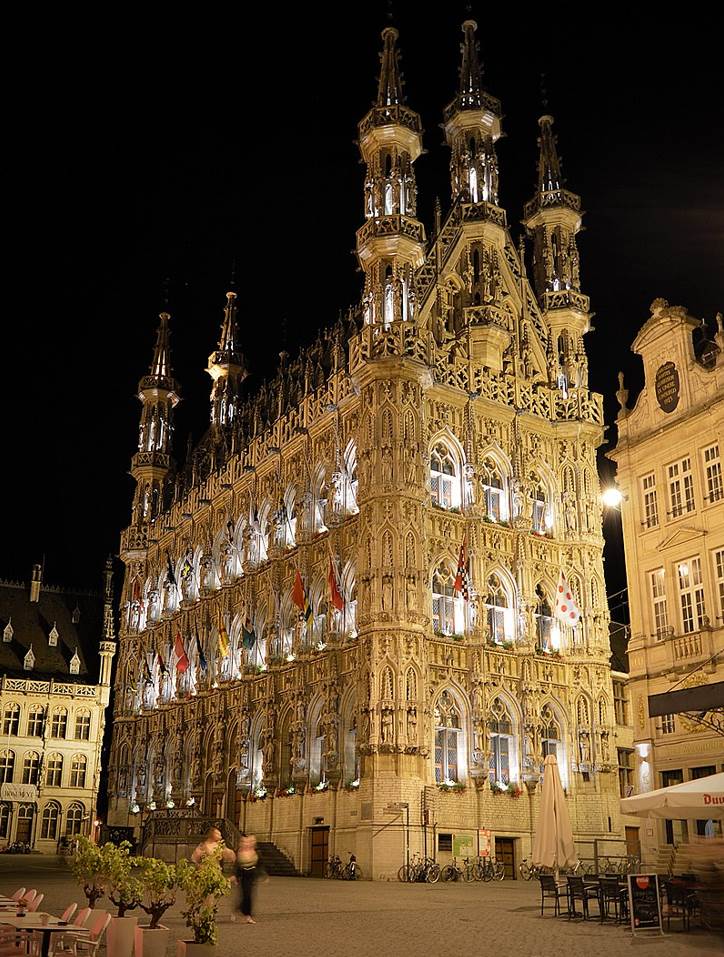Many of the most famous Gothic cathedrals in the world are the most impressive structures ever built.
Not every Gothic building is a stunning church, though. The city hall of this city just east of Brussels is arguably one of the most beautiful buildings in Belgium.
In this article, we’ll take a closer look at some of the most interesting facts about the Leuven Town Hall, a fascinating city hall building for many reasons.
1. It’s located on the main square of a university city in Belgium
The Leuven Town Hall is the magnificent building that dominates the southern part of the city’s main square referred to as the “Grote Markt.”
This famous square is pretty narrow because the northern part is completely occupied by the huge St. Peter’s Church across from the Town Hall. Unsurprisingly, this church is 93 meters (305 feet) long.
Leuven is the capital and largest city of the Belgian province of Flemish Brabant and is home to just over 100,000 inhabitants. It’s situated about 25 kilometers (16 miles) east of Brussels.
The city is most notable home to the KU Leuven, the largest university in Belgium that was established in 1425. It’s the oldest of its kind in the Low countries and among the top 100 universities in the world.
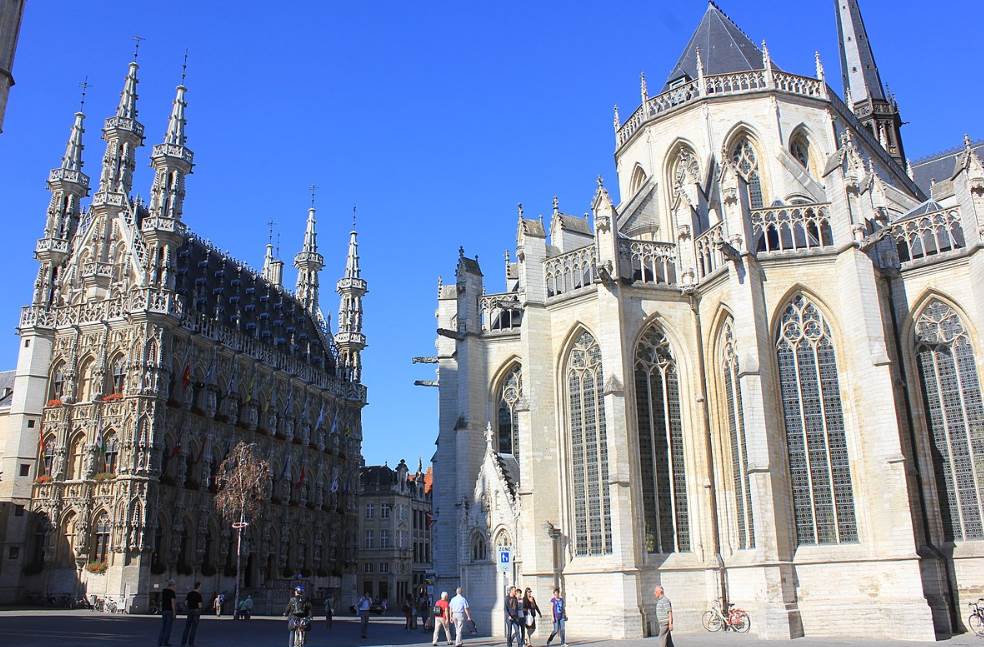
2. The building was part of a much larger 15th-century complex
The Town Hall in Leuven wasn’t the first of its kind in this location. It was constructed to replace an even older building that served as the city’s main administrative office.
Equally remarkable is the fact that the building we can admire today was only part of a larger complex of civic buildings that were constructed in the 15th century.
Back then, this building was referred to as the “Voirste Huys” of “Front House.” Additional buildings flanked it which made up the entire municipal complex.
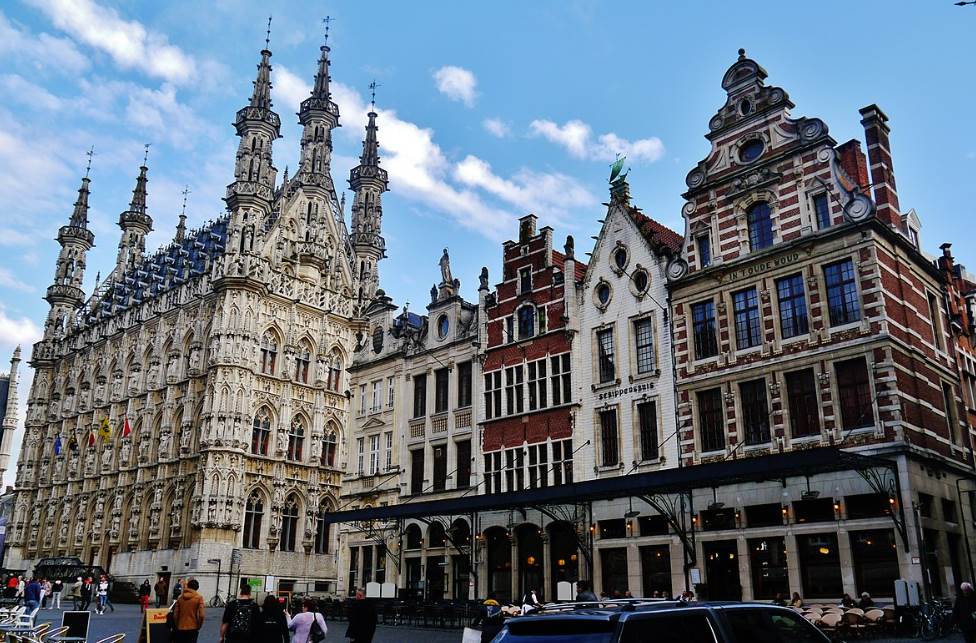
3. The Leuven Town Hall is the epitome of the Brabantine Gothic style
Because this building faced the main square in the city, it was designed to become the most beautiful building in Leuven.
It’s pretty fair to conclude that the architects achieved just that because this is one of the most amazing Gothic buildings in the world.
The flamboyant style of the structure is referred to as Brabantine Gothic. It was common in the Low Countries during the late Middle Ages and first emerged in Mechelen at St. Rumbold’s Cathedral in the first half of the 14th century.
Since the building in Leuven was constructed in the 15th century, it’s the most notable example of the Late Brantine Gothic style.
The pointy windows and spires were similar to those in the Gothic cathedral of France. The use of light-colored sandstone, however, made it easy to integrate sculptural decorations into the building.
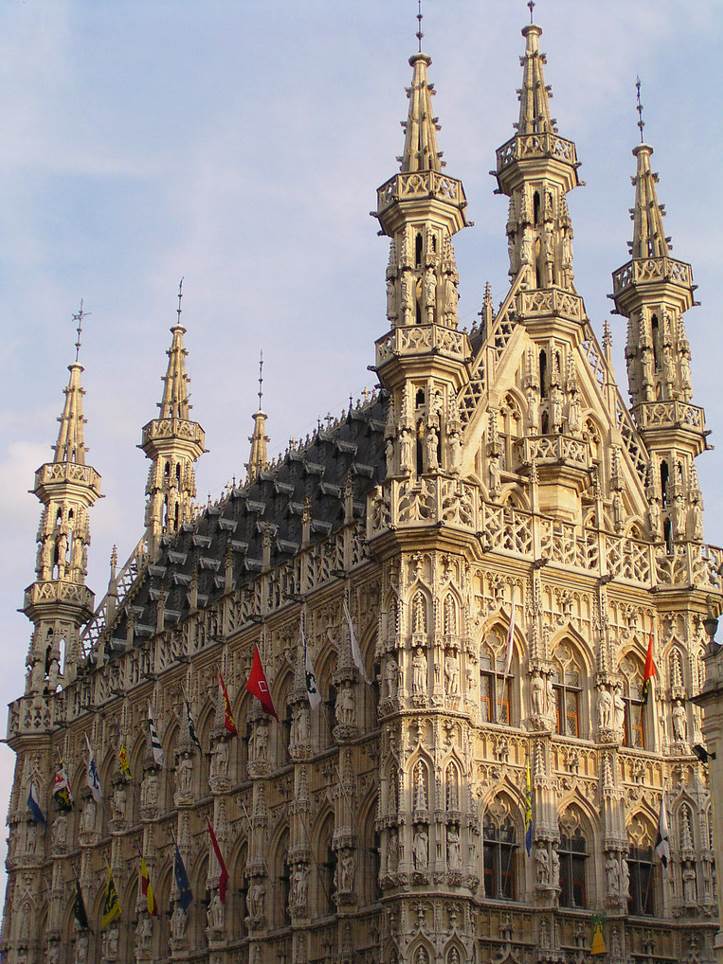
4. It took over 2 decades before the building was completed in the 1460s
The construction of the Leuven Town Hall started in the year 1439. The first architect, a man named Sulpitius Van Vorst, didn’t see much of the building completed.
His successor Jan Keldermans II managed to complete the first construction phase in 1445 but he died shortly after as well.
The successor of the first two architects was Matheus de Layens, a man who completed the construction of the budling in 1469.
Mattheus de Layens is also credited with completing the transept of St. Peter’s Church in Leuven and the building’s Sacrament Tower.
The Round Table building next to the City Hall, a 20th-century replica of his original design that serves as a hotel today, is also credited to him.
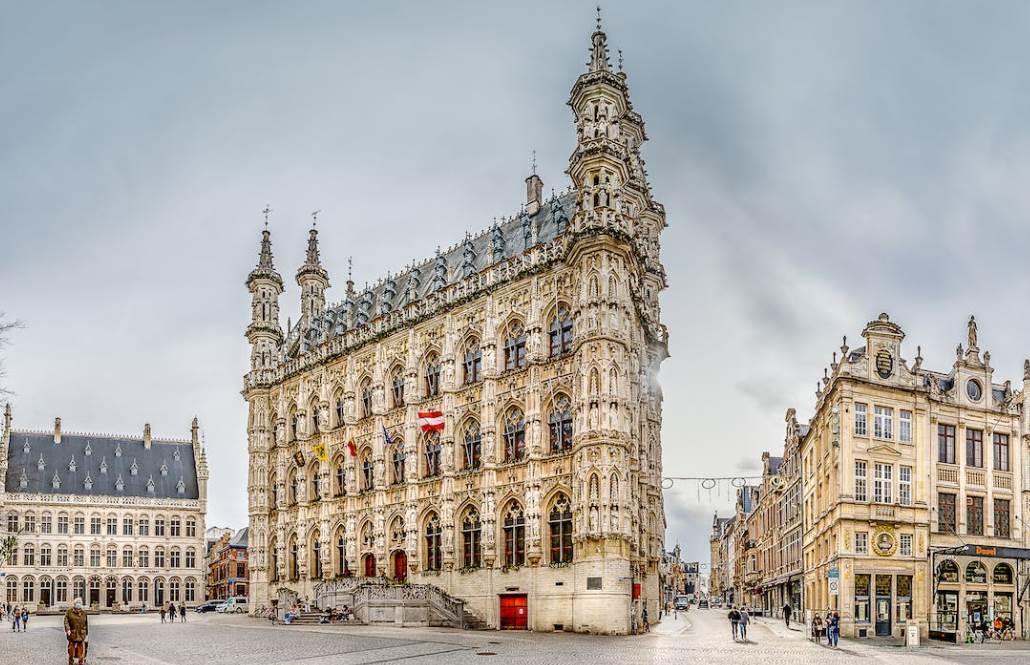
5. The building’s exterior is decorated with 236 sculptures
Carving decorations into the limestone façade of the Town Hall was pretty easy for experienced sculptors, and that’s exactly what they did.
The building is decorated with 236 sculptures on its façade, but these are later additions that were added in the second half of the 19th century.
There are three rows of sculptures that depict the following:
- First row – Important figures in the history of the City of Leuven.
- Second row – Patron saints and other figurative people.
- Third row – The Counts of Leuven and the Dukes of Brabant from various centuries.
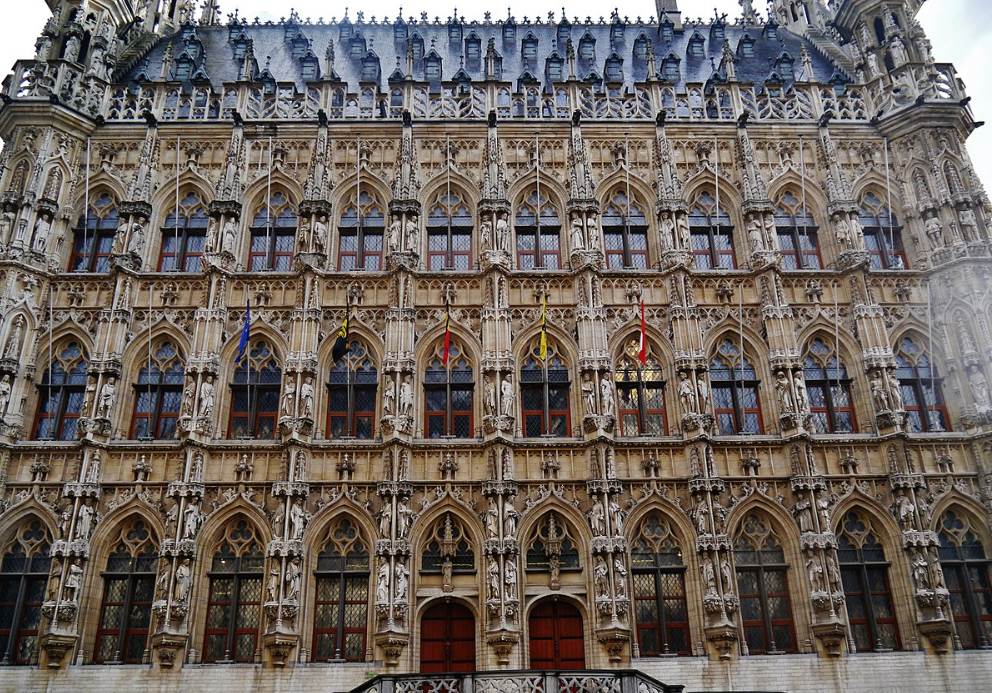
6. The corbels that support the niches are original 15th-century elements
Although the sculptures were carved in the 18th century and added after 1850, there is still a ton of original decorations that date back to the 15th century.
Some of the most notable examples are the niches in which the 236 sculptures reside and the corbels that support them.
These corbels feature carved reliefs that depict Biblical scenes. These elements transform the entire building into a huge and stunning work of art.
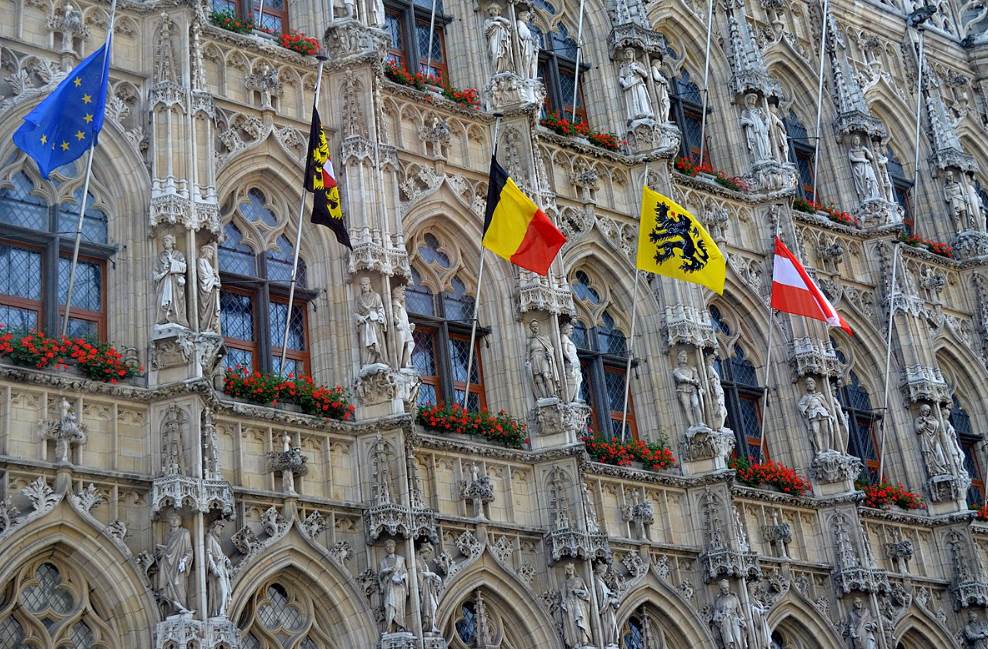
7. The main room inside the Town Hall is referred to as the “Gothic Hall”
The interior of the Leuven Town Hall is way less impressive than the magnificent exterior of the building.
It’s still fascinating to walk into a room that has a history that goes back nearly 6 centuries. That’s exactly what you get at the large Gothic Hall inside the building.
Other rooms include the foyer, the small Gothic Hall, and the council room. The interior is decorated with artworks produced by Belgian artists Constantin Meunier (1831-1905) and Jef Lambeaux (1852-1908).
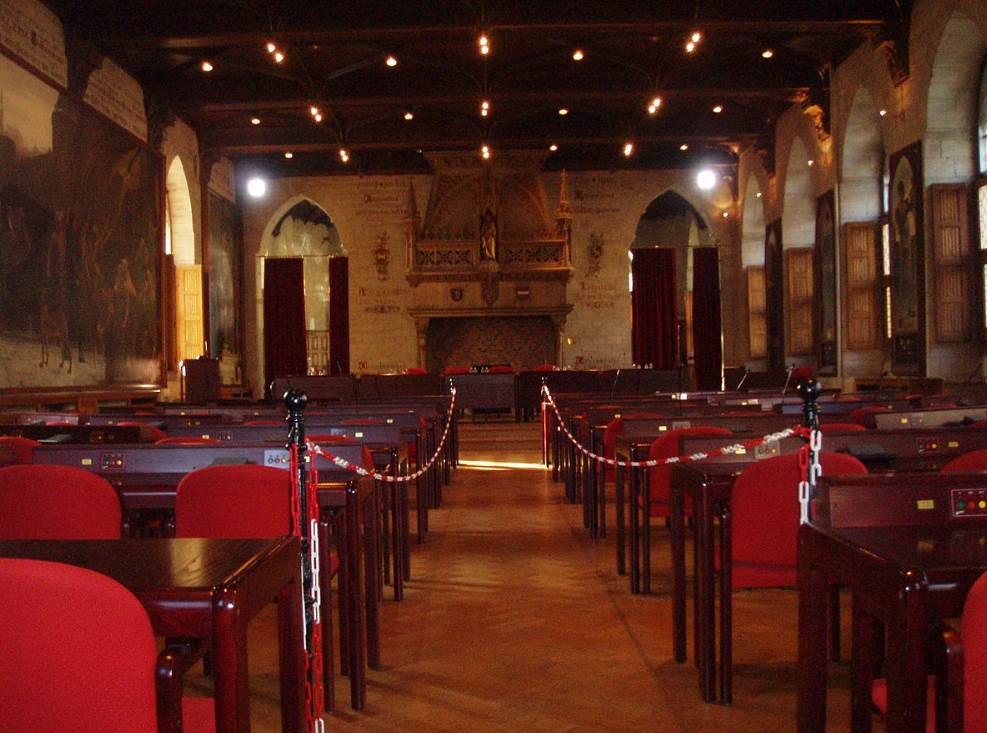
8. It only serves a ceremonial purpose and as a tourist attraction today
The building is brightly illuminated at night which makes the Gothic decorations stand out even more. It’s a great place to enjoy a drink or dinner, that’s for sure.
If you want to learn more about the sculptures that decorate the building and its history, then you can book a guided tour.
The Gothic masterpiece serves its purpose as a tourist attraction, and a wonderful attraction it is, don’t you think?
